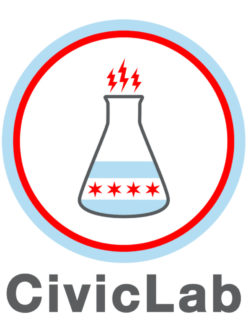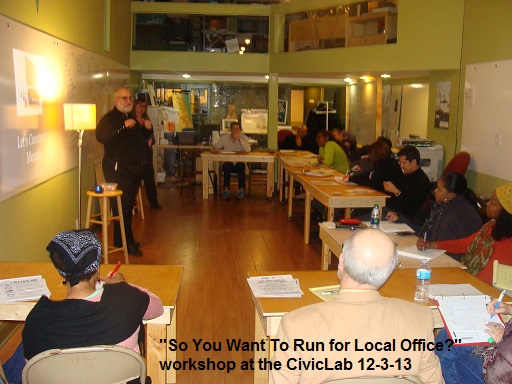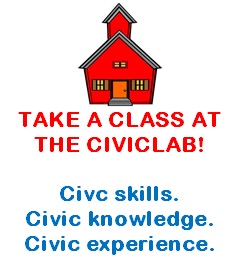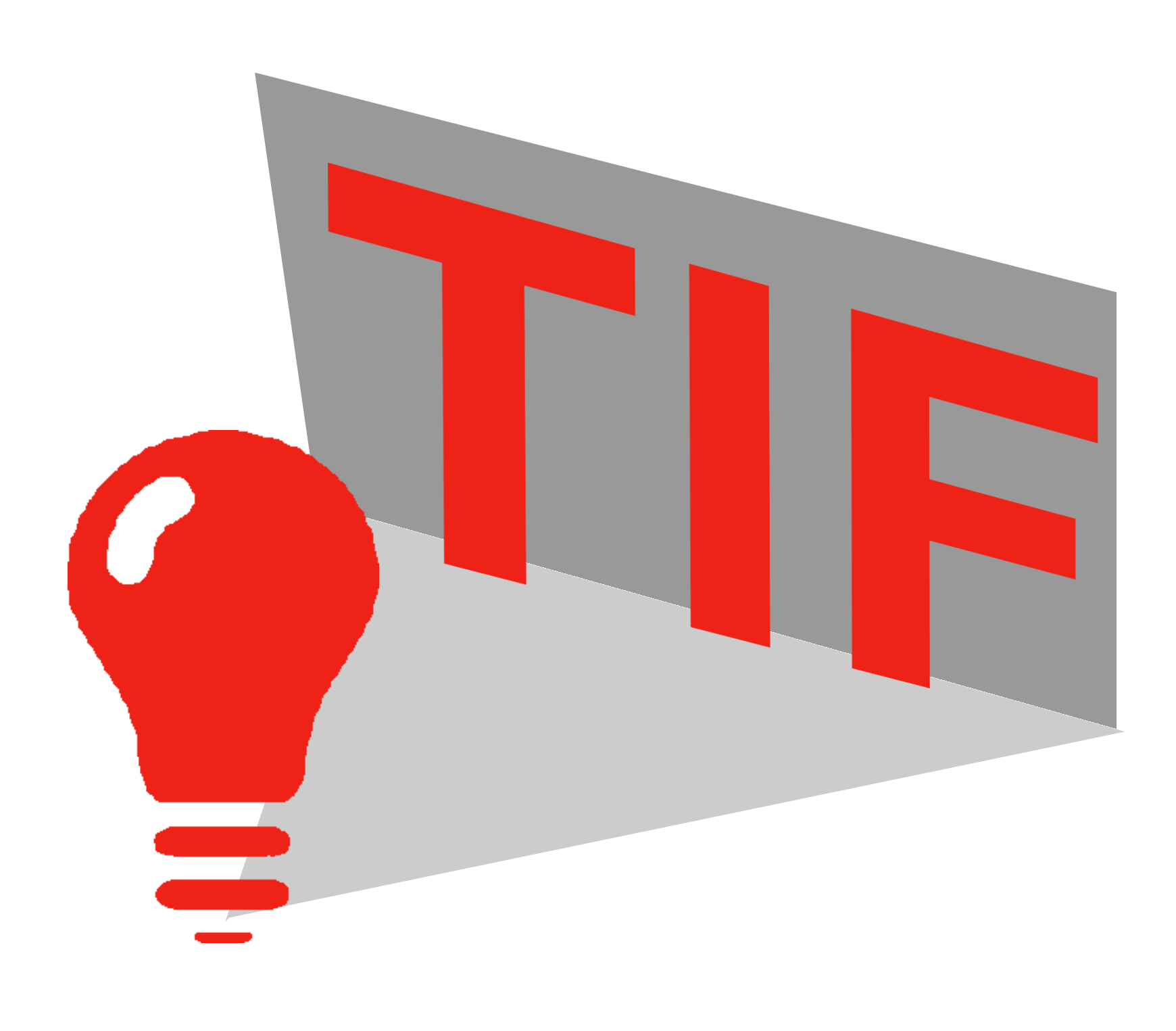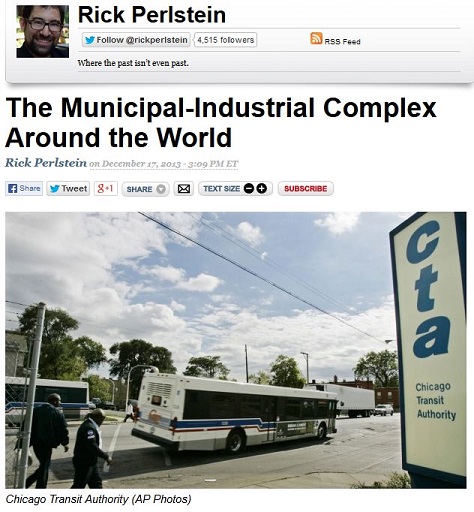 Historian and reporter for The Nation Rick Perlstein is doing a series of articles on the perils of privatization. In this 13 minute interview on WBEZ he lays out the reasons to be very skeptical about the sorts of deals Chicago is “forcing down the throats” of the taxpayers. He gives a shout out to the work of Tom Tresser and the TIF Illumination Project.
Historian and reporter for The Nation Rick Perlstein is doing a series of articles on the perils of privatization. In this 13 minute interview on WBEZ he lays out the reasons to be very skeptical about the sorts of deals Chicago is “forcing down the throats” of the taxpayers. He gives a shout out to the work of Tom Tresser and the TIF Illumination Project.
Category: News
Read “State of Deception.” Then Join Restore The Forth
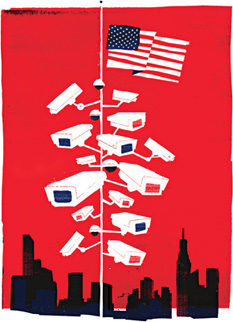 From the December 16 issue of The New Yorker. “It is evident from the Snowden leaks that Obama inherited a regime of dragnet surveillance that often operated outside the law and raised serious constitutional questions. Instead of shutting down or scaling back the programs, Obama has worked to bring them into narrow compliance with rules—set forth by a court that operates in secret—that often contradict the views on surveillance that he strongly expressed when he was a senator and a Presidential candidate.”
From the December 16 issue of The New Yorker. “It is evident from the Snowden leaks that Obama inherited a regime of dragnet surveillance that often operated outside the law and raised serious constitutional questions. Instead of shutting down or scaling back the programs, Obama has worked to bring them into narrow compliance with rules—set forth by a court that operates in secret—that often contradict the views on surveillance that he strongly expressed when he was a senator and a Presidential candidate.”
Read this and then come to the CivicLab to join in with the volunteers from the Chicago chapter of Restore The Fourth. Big Brother IS watching. E-Mail: RT4.Chicago@gmail.com, 773-417-9943. https://www.facebook.com/RTFChicago.
You Can Run For Local Office…
..or help someone you know and support run for local office! On December 3 master organizers Kitty Kurth and Kevin Lampe conducted a workshop on the basics of running for local office. We had a packed house at the CivicLab. At least five people said they are planning on running for office! We’ll be scheduling more workshops like this in the near future. Keep your eye on the CivicLab workshop schedule at Eventbrite.
A Giant Passes
DFEX: Chicago – Week 2
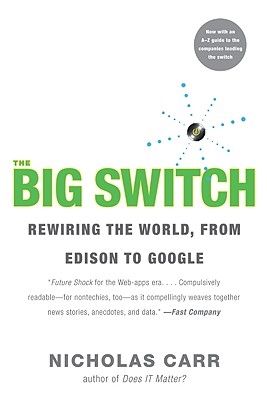 Previously we discussed a very bright ecology of technology and optimism with the potential to lend enormous empowerment to communities and individuals. This week, we explored some darker implications that same ecology had created the environment for in two chapters from Nicholas Carr’s book “The Big Switch”.
Previously we discussed a very bright ecology of technology and optimism with the potential to lend enormous empowerment to communities and individuals. This week, we explored some darker implications that same ecology had created the environment for in two chapters from Nicholas Carr’s book “The Big Switch”.
The first chapter we read was Chapter 7, “From the Many to the Few”. In this Chapter Carr begins by framing the conversation with one of the world’s most historic YouTube videos of founders Chad Hurley and Steve Chen announcing they had been bought by Google for $1.65 Billion Dollars. For Carr this is a cautionary tale about the acceleration of a long term trend of the concentration of wealth.
Changes in technology have always created disruptions in employment, computerized assembly lines, for example. Even then, the decrease in worker demand on the line was in part offset by a new demand for human information processing tasks. However, we have now reached a point where “computerization creates new work, but it’s work that can be done by machines. People aren’t necessary.” (pg. 136).
Internet companies also don’t obey previous limits on the amount of wealth a product can create known as diminishing returns to scale. Companies that produce physical products are limited in their returns because in order to make more products, they have to pay for more and more workers, factories, raw materials etc. Software companies do not have this problem, in order to create more products, it’s only cost is the cost to copy the product. Therefore they exhibit increasing returns to scale.
Companies such as Craigslist, YouTube, Facebook, and Google don’t pay for content generation, only the infrastructure to house it. Since they sell ads related to that content, they’re essentially getting revenue for advertising products that they did not have to put in the capital to create. Although the windfall may be larger, since companies don’t have to hire the content generators, it will be shared between an even fewer number of people. The concentration of wealth into the hands of corporations is not a new thing. What’s new here is the further concentration of the wealth “funneled to ‘a small fraction’ of particularly talented individuals…In the YouTube economy, everyone is free to play, but only a few reap the rewards.” (pg. 147)
We then turned to Chapter 8, “The Great Unbundling” in which Carr elucidates the downsides of a phenomena that we often feel we benefit from, The Long Tail. The Long Tail is an idea put forth by Chris Anderson which explores the effects of the Internet’s ability to make niche markets profitable; the iconic example being iTunes. Previously, selling niece material was unprofitable because of the high cost of producing it and finding the audience to pay for it. Profits were limited by shelf space, so accordingly, media was created to appeal to as wide a mass of people as possible. But without being bounded by a limited number of CD’s they can put on a shelf, iTunes can provide a greater diversity of music and bring direct access to a particular audience across geographic bounds even to the discrete level of the individual song which can be downloaded with out the album.
The effects of being able to hear exactly what you want might be an overall positive for music, but it’s not that great a thing when it comes to arenas where you want to be challenged with ideas you don’t want to hear. Suppose we see a newspaper as an album, and the individual articles as songs. Previously, print media was supported by ads across the entire paper. High quality small audience content (reporting from a war-zone) could be supported by ad revenue from low quality large audience content (classifieds). Now, ads are sold next to individual articles which means that it’s up to the article itself to generate ad revenue. This puts pressure on the article to grab the attention of the reader, often by polarizing the conversation.
Additionally while personalization algorithms often help us find niche content, they can trap us into a gravity well of “ideological amplification”, segregating cultures even more. In one example Carr cites a 2005 study in which researchers gathered 63 Coloradans of varying political views; half from the more liberal Boulder and the other half from the conservative leaning Colorado Springs. After filling out questionnaires about their political beliefs, the groups split up into discussion groups made up of like-minded individuals. Taking the same questionnaire afterwards showed “not merely a tendency for members to conform to the group average, but a radicalization in which this average moves towards extremes.” (pg. 165)
The Internet is deceptive. It gives you access to a greater diversity of information, but in reality we come across a very low amount of information that is truly novel. You quickly get the impression that everyone you know agrees with you because in your reality, they do.
Take Workshop On Running For Office
 Unhappy about the way your local government is running? Stop complaining and BE the government! That’s right, YOU can run for local office and become part of the solution to persistent problems and create new possibilities for your community.
Unhappy about the way your local government is running? Stop complaining and BE the government! That’s right, YOU can run for local office and become part of the solution to persistent problems and create new possibilities for your community.
This dynamic 90 minute workshop will show you the BIG picture when considering a run for local office. We will show you a path for success and you will hear from candidates who ran and lost and who ran and won. Bottom line: You CAN do this. This session will explore the Frequently Asked Questions about seeking local office. We will be offering a full day training on the mechanics and tactics in January where attendees will take home a play book for action. Attendees to the December 3rd workshop will receive a discount to that full day training session.
$20. PLEASE REGISTER @ https://running-12-3.eventbrite.com.
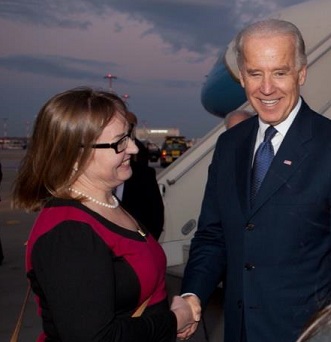 The workshop instructors are Kitty Kurth and Kevin Lampe. Kurth Lampe is a Chicago-based strategic communications firm with an international reach with Chicago know how. Complicated ideas are turned into compelling and persuasive messages. Campaigns Kitty Kurth has worked on numerous campaigns serving in roles as campaign manager, press secretary, fundraiser, and advance coordinator. Kurth has served as a media consultant and general consultant for political races at every level from local to presidential including the role of Illinois campaign manager for Presidential candidate Paul Tsongas, national press and advance staff or the general election campaign of Governor Michael Dukakis and Illinois press secretary and spokesperson in the primary and advance person /organizer for Ron Brown’s campaign for Chairman of the Democratic National Committee.Training Kurth regularly provides training for candidates and campaign staff for the Democratic National Committee and the Democratic Congressional Campaign Committee, Women’s Campaign Fund, National Women’s Political Caucus, and other groups. In 2001, the U.S. State Department sent Kurth and Lampe to Uganda to conduct campaign-training workshops for women Members of Parliament, candidates, and activists.
The workshop instructors are Kitty Kurth and Kevin Lampe. Kurth Lampe is a Chicago-based strategic communications firm with an international reach with Chicago know how. Complicated ideas are turned into compelling and persuasive messages. Campaigns Kitty Kurth has worked on numerous campaigns serving in roles as campaign manager, press secretary, fundraiser, and advance coordinator. Kurth has served as a media consultant and general consultant for political races at every level from local to presidential including the role of Illinois campaign manager for Presidential candidate Paul Tsongas, national press and advance staff or the general election campaign of Governor Michael Dukakis and Illinois press secretary and spokesperson in the primary and advance person /organizer for Ron Brown’s campaign for Chairman of the Democratic National Committee.Training Kurth regularly provides training for candidates and campaign staff for the Democratic National Committee and the Democratic Congressional Campaign Committee, Women’s Campaign Fund, National Women’s Political Caucus, and other groups. In 2001, the U.S. State Department sent Kurth and Lampe to Uganda to conduct campaign-training workshops for women Members of Parliament, candidates, and activists.
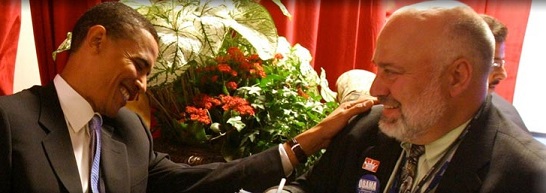 Kevin Lampe’s professional experience includes political campaigns ranging from local library boards to presidential campaigns. He has worked during each presidential election cycle since Governor Mike Dukakis in 1988. He served in variety of senior staff roles – including Director of Communications – for presidential candidates. Additionally, he served as an advance man for President Bill Clinton and Vice President Al Gore. Lampe is regularly called upon to train his clients to work with the media. He has performed this task for everyone from US Presidential candidates and other elected officials to community leaders and business executives. Since 1996, he has served on the Speaking Tracking Team at each Democratic National Convention – which handles all the speakers at this event. At the 2004 convention, he worked with then state Senator Barack Obama on his keynote address. In 2012, Lampe was in charge of training for entire Speaking Tracking Team at the Democratic National Convention. Kevin has worked with Hotel Rwanda’s Paul Ruesabegina, Erik Estrada, Ambassadors, CEOs, Senators, and Congressmen. He has worked across the US and in Kosovo, Uganda, Belgium, Albania, Sweden, United Kingdom, Norway, Mali and Macedonia.
Kevin Lampe’s professional experience includes political campaigns ranging from local library boards to presidential campaigns. He has worked during each presidential election cycle since Governor Mike Dukakis in 1988. He served in variety of senior staff roles – including Director of Communications – for presidential candidates. Additionally, he served as an advance man for President Bill Clinton and Vice President Al Gore. Lampe is regularly called upon to train his clients to work with the media. He has performed this task for everyone from US Presidential candidates and other elected officials to community leaders and business executives. Since 1996, he has served on the Speaking Tracking Team at each Democratic National Convention – which handles all the speakers at this event. At the 2004 convention, he worked with then state Senator Barack Obama on his keynote address. In 2012, Lampe was in charge of training for entire Speaking Tracking Team at the Democratic National Convention. Kevin has worked with Hotel Rwanda’s Paul Ruesabegina, Erik Estrada, Ambassadors, CEOs, Senators, and Congressmen. He has worked across the US and in Kosovo, Uganda, Belgium, Albania, Sweden, United Kingdom, Norway, Mali and Macedonia.
Are YOU In A TIF District? Get Illuminated?
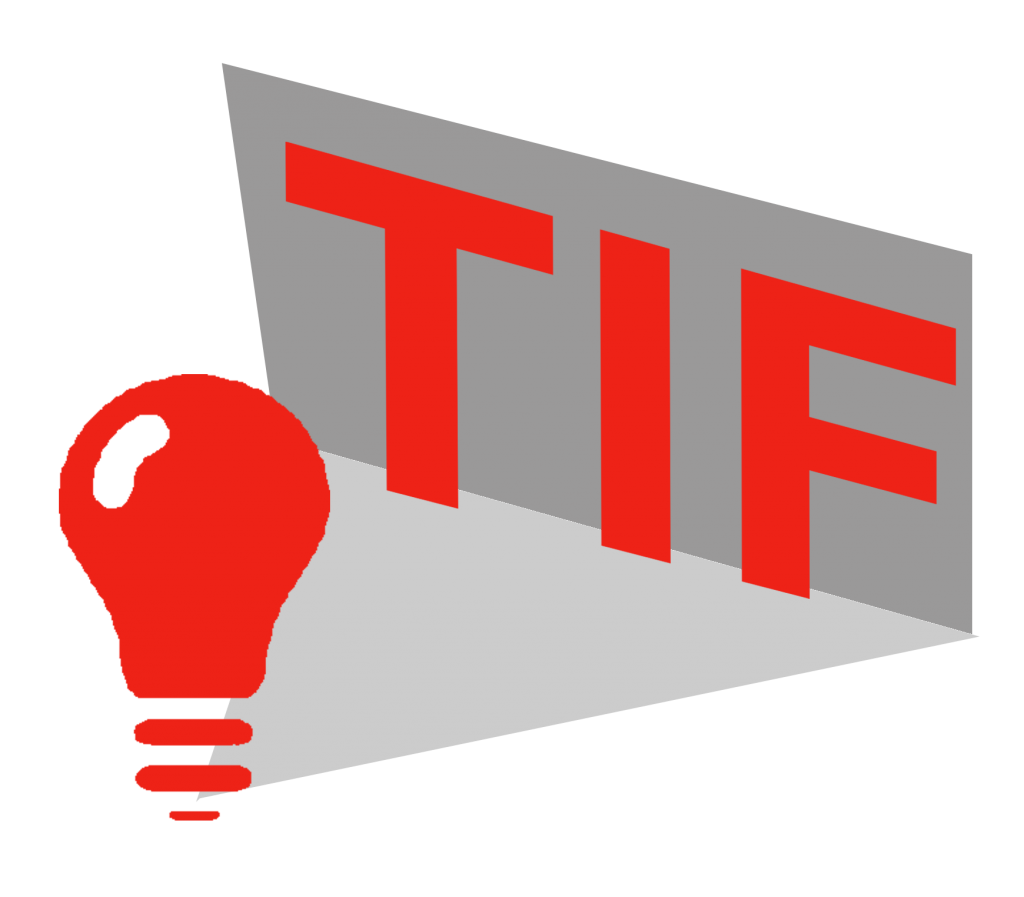 Now you can get your own personal TIF Ilumination! For the absurdly low price of $25 we will tell you:
Now you can get your own personal TIF Ilumination! For the absurdly low price of $25 we will tell you:
(1) If you are in a TIF District.
(2) If you are, then we will tell you the name of the TIF, when it was created, how much money it extracted in 2012, how much money was left in the TIF at the end of 2012, what major projects were funded by it, AND what percent of YOUR property tax bill was taken by that TIF.
(3) If you are NOT in a TIF we can either convert your fee to a non-deductible contribution, give you credit to an upcoming CivicLab workshop or refund the fee minus PayPal’s service fee. To avoid this option, simply look at your current property tax bill. If you see a name of a TIF district on there, then, buckeroo, you’re being TIF’d.
All funds we receive go to support the operation of the CivicLab, which is 100% volunteer operated. Once we receive notice of payment we’ll email you for your address. We’ll get you a report in 24 hours!
CivicLab Welcomes Move To Amend!
 CivicLab welcomes Toma Lynn Smith, from Move To Amend, to the Lab!
CivicLab welcomes Toma Lynn Smith, from Move To Amend, to the Lab!
“Formed in September 2009, Move to Amend is a coalition of hundreds of organizations and tens of thousands of individuals committed to social and economic justice, ending corporate rule, and building a vibrant democracy that is genuinely accountable to the people, not corporate interests. We are calling for an amendment to the US Constitution to unequivocally state that inalienable rights belong to human beings only, and that money is not a form of protected free speech under the First Amendment and can be regulated in political campaigns.”
DFEX: Chicago – Week 1
DFEX: CHI is off and running! In our first week we engaged with three videos that laid the groundwork for understanding the current design and technology environment we live in.
The first was a TED talk by Lawrence Lessig in which he discussed the ecology of creativity that fair use can either constrain or allow to flourish. Interestingly, he identifies this as an area where conservatives and liberals are on the opposite sides of the issue as you’d expect. Using Disney as an example, he notes that when Disney was run by Walt Disney (a republican) it made extensive use of the public domain works of The Brothers Grimm. Yet, when under the helm of Michael Eisner (a democrat) Disney lobbied hard (and successfully) for the adoption of the Copyright Extension Act which extended copyright to the life of the author plus 70 years. Lessig points out the glaring hypocrisy; by instituting this law, Disney made it impossible for anyone to do to Disney, what Disney did to The Brothers Grimm.
Next we turned to a talk by Yochai Benkler in which he discussed a significant shift in economics; social production. Examples of this can be found in projects such as SETI’s @Home program which uses peoples’ individual computers to analyze data SETI has collected. Instead of viewing a separation between the Industrial Age and the Information Age, Benkler re-frames the conversation by stating that we have always been in the Information Age, it’s just that the means of disseminating the information was industrial. As such, it required a very high level of capital investment to distribute knowledge and culture (newspapers, for example) but today, these instruments are in the hands of average people. As such, Benkler notes that in addition to corporations (market-based and centralized) and non-profits (non-market based and centralized), we have a new transactional framework, social production, which is both non-market based, and decentralized.
Finally we explored the power of information and coordinated action in the hands of average people in a talk by Clay Shirky. As an example, Shirky notes an experience with the bank HSBC in which they had promised students checking accounts with out penalty fees for overdrafts. A short while later, they changed their position and said that these accounts would now incur a substantial fee. Students could avoid this fee by switching to a different account, but it was a rather complex and time consuming process. In previous times, people would have been helpless against this because institutions had two major advantages. 1) They had the means of knowledge, in this case the complicated process of switching, and 2) the means of coordination (eg the actual mechanisms for putting the policy in place). But today it’s different. Using Facebook, students set up a page to teach people how to switch (information) and circumvented geographical boundaries to organize a protest (coordination). HSBC soon backed down.
“Who Owns West Woodlawn?” Town Meeting
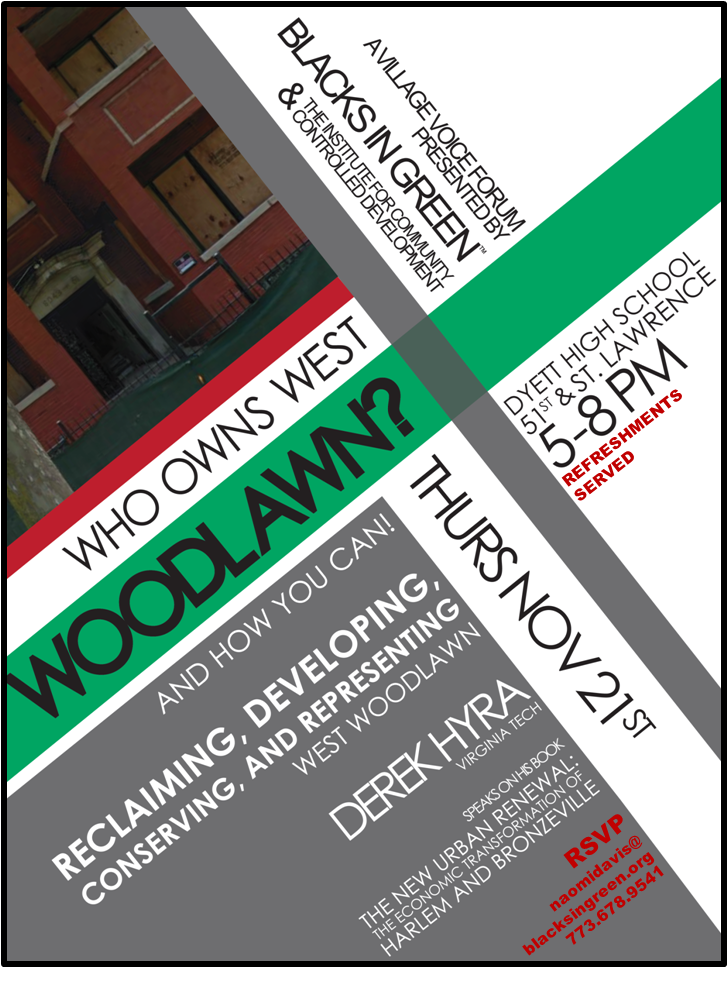 Tom will be presenting on the TIFs of the 20th Ward at this town meeting.
Tom will be presenting on the TIFs of the 20th Ward at this town meeting.
